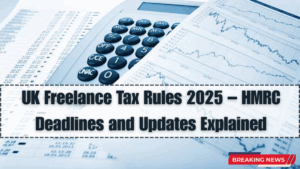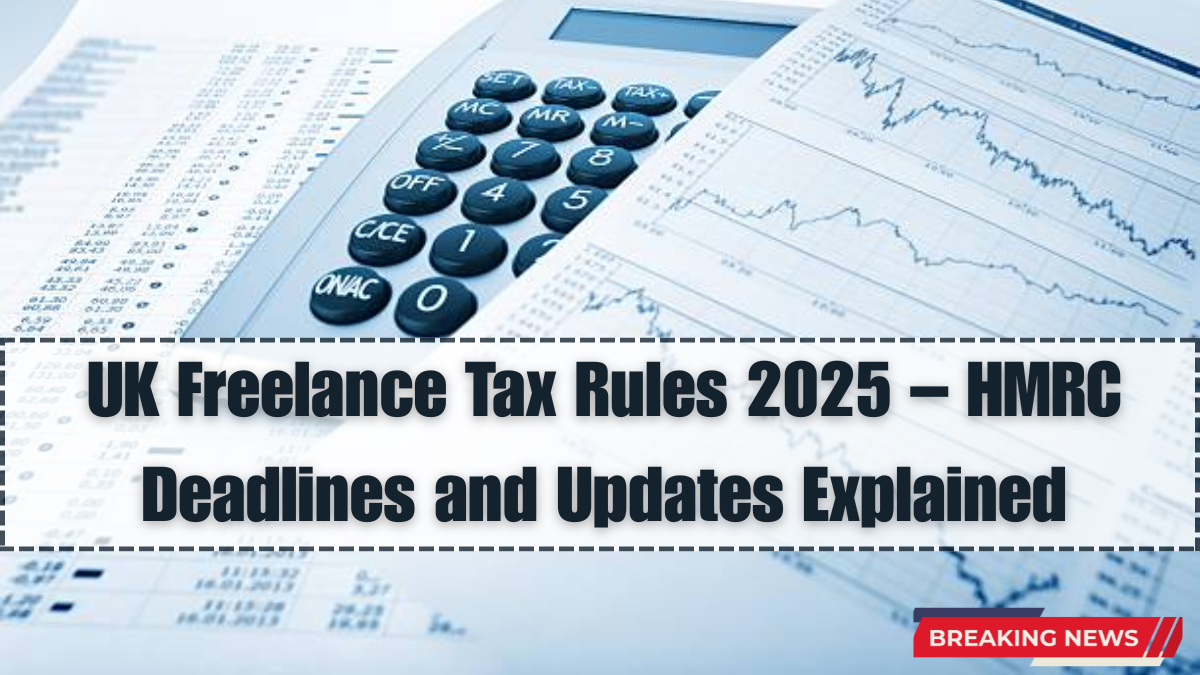Freelancers in the UK must stay informed about the latest tax regulations to stay compliant and avoid penalties. The UK Freelance Tax Rules 2025 bring some key updates aimed at streamlining the process for self-employed individuals while increasing transparency in tax reporting. Whether you’re a new freelancer or a seasoned contractor, these new rules directly impact how you file your returns, calculate deductions, and report income.
HMRC’s 2025 changes are part of a wider initiative to digitize the UK tax system and reduce the tax gap. These changes also reflect the growing size of the freelance economy. Understanding the latest UK Freelance Tax Rules 2025 is essential to make the most of your deductions and meet your legal responsibilities.

Key Tax Filing Changes for UK Freelancers in 2025
The 2025 tax rules introduce updates that directly affect how and when freelancers must report their earnings. Major changes include:
-
Mandatory digital recordkeeping via approved software
-
Quarterly income reporting under Making Tax Digital (MTD)
-
New threshold adjustments for small business relief
-
Updated allowable expenses for work-from-home setups
-
Clarified IR35 rules for contracts with medium/large companies
The self-employed tax changes UK also aim to reduce confusion by simplifying allowable expenses and offering better guidance on mixed-income sources.
Important HMRC Deadlines and Filing Schedule
Freelancers need to be mindful of the updated deadlines introduced in 2025. Missing these dates could lead to penalties or interest on late payments.
| Tax Task | Deadline in 2025 |
|---|---|
| Register as Self-Employed | 5 October 2025 |
| File Self-Assessment Tax Return | 31 January 2025 (for 2023–24 tax year) |
| Pay Tax Bill (First Payment) | 31 January 2025 |
| Pay Tax Bill (Second Payment) | 31 July 2025 |
| Quarterly MTD Submissions | Last day of each quarter (April, July, Oct, Jan) |
Following the UK Freelance Tax Rules 2025, using accounting software like FreeAgent, Xero, or QuickBooks is now recommended for smooth compliance.
Deductibles, Allowances & What’s New in 2025
The government has introduced additional flexibility in allowable deductions. The updated UK Freelance Tax Rules 2025 allow freelancers to claim more work-related costs, especially for remote working.
New and clarified deductibles include:
-
Broadband and mobile phone usage (proportional to work use)
-
Rent or mortgage interest (for part of the home used as office)
-
Equipment/software subscriptions
-
Business travel and co-working spaces
-
Marketing, web hosting, and design costs
These new allowances under the self-employed tax changes UK are designed to reflect the evolving nature of freelance work in a digital-first economy.
How These Tax Updates Support Freelancers
The UK Freelance Tax Rules 2025 are not just about regulation—they also support freelancers in planning better. The shift to quarterly reporting gives more clarity on cash flow, while updated deductibles ensure fairer tax payments. Key benefits include:
-
Better budgeting due to regular income reporting
-
Simplified deductions for digital and home-based work
-
Encouragement of financial discipline throughout the year
-
Protection from unexpected large tax bills in January
This creates a more transparent, predictable, and manageable tax environment for freelancers across the UK.
FAQs
What is the biggest change in the UK Freelance Tax Rules 2025?
The major update is the mandatory shift to quarterly digital reporting through Making Tax Digital (MTD), impacting how freelancers report their income.
Do I still need to file a yearly return?
Yes, despite quarterly reports, the annual self-assessment return is still required.
Are the new rules applicable to part-time freelancers too?
Yes, anyone who earns income through self-employment must follow the UK Freelance Tax Rules 2025, even if it’s part-time.
What software is accepted for MTD?
HMRC-approved software like Xero, QuickBooks, and FreeAgent are recommended for submitting quarterly updates and tracking expenses.
Can I still claim home office expenses?
Yes, the self-employed tax changes UK continue to allow home office deductions with improved clarity on allowable percentages.
Click here to know more.
